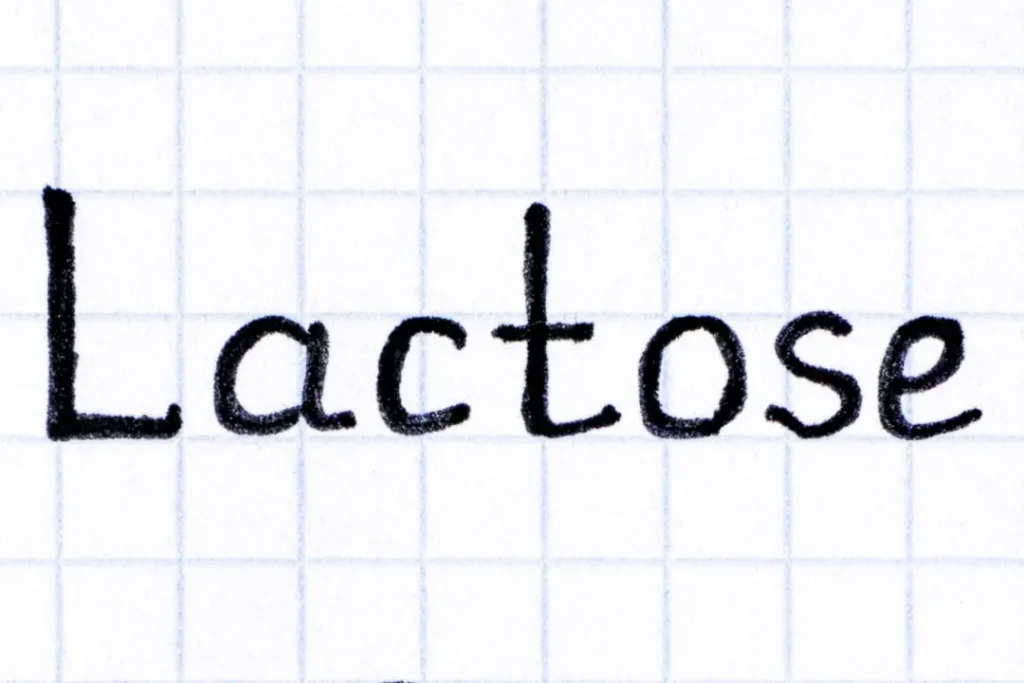Fermented Milk is one product that has drawn more recent attention in the ongoing, collective quest for ideal health and nutrition. This straightforward, traditional cuisine has stood the test of time while providing a wide range of health advantages. The delivery of an in-depth examination of the characteristics of Fermented Milk, its health benefits, suggested doses, possible adverse effects, drug interactions, and best practices for its responsible use are all goals of this article.
You May Also Like:
CBD for Concentration: 3 Epic Benefits that Boost Your Focus
CBD for Concentration: The Productivity Hack for Energy and Focus
Fermented Milk: Benefits, Dosage, Side Effects, Drug Interactions, and Other Important Information is an original (NootropicsPlanet) article.
The Nature of Fermented Milk
By definition, Fermented Milk is a dairy product made from milk that has undergone bacterial fermentation. Lactose, a kind of sugar found in milk, is transformed into lactic acid by bacteria, predominantly Lactobacilli and Bifidobacteria, as part of the fermentation process. As a consequence, a beverage is produced that has a unique acidic flavor, a creamy texture, and a longer shelf life than fresh milk.
The wide range of microbiota in Fermented Milk sets it apart from other dairy products. Bioactive peptides and metabolites are produced as a result of the fermentation process, which support the growth of probiotics or beneficial bacteria. These compounds are essential for delivering health benefits.

Health Benefits of Fermented Milk
Because it contains a lot of probiotics, Fermented Milk is a health food powerhouse. Its importance for gut health, immunological function, and even mental health is supported by a large body of studies.
The good bacteria found in Fermented Milk can enhance digestive health. These good bacteria improve gut health, encourage nutrition absorption, and help to relieve irritable bowel syndrome (IBS) symptoms. The pH equilibrium of the gut is improved by the lactic acid produced during fermentation, which also creates an environment that is unfavorable to pathogenic bacteria.
Fermented Milk can boost the body’s immunological response and promote immune wellness. By interacting with gut-associated lymphoid tissues and stimulating the generation of antibodies and cytokines, which aid in fighting infections, probiotics in Fermented Milk can alter the immune system positively.
The “gut-brain axis,” which is frequently discussed in relation to the possible effects of Fermented Milk on mental health, has received attention recently. According to studies, probiotics may affect how neurotransmitters are made, which may help to regulate mood and reduce stress and anxiety. If your gut is healthy, then that healthy state can positively affect your brain health as well.

Chemistry of Fermented Milk
One outstanding illustration of biochemistry at action is Fermented Milk. The major ingredient, milk, is a complex mixture of water, lipids, proteins (casein and whey proteins), carbohydrates (mostly lactose), minerals, and vitamins. Lactose is used as an energy source by the bacteria, predominantly Lactobacillus and Bifidobacterium, during the metabolic process of fermentation, which results in the production of lactic acid. This biological process lowers the pH of the milk, which causes the milk proteins to denature and coagulate and give Fermented Milk its distinctive texture and acidic flavor.
The fermentation process, in addition to producing lactic acid, also results in the synthesis of a number of bioactive substances, such as organic acids, exopolysaccharides, bacteriocins, and biogenic amines. Bioactive peptides, which the bacterial enzymes release from milk proteins during fermentation, are of special interest to the scientific and consumer communities. The anti-hypertensive, anti-oxidative, and immune-modulating actions of these peptides are only a few of their many health-promoting qualities.

Physiological Mechanisms of Action
The influence of fermented milk on the gut microbiota and the physiological reactions that result The influence of Fermented Milk on the gut microbiota and the physiological reactions that result from that influence are what are responsible for its health advantages. A balanced gut microbiota is essential for several facets of human health, and the probiotics in Fermented Milk help to support this microbiome.
These probiotics enter the body through food consumption, colonize the gut, and compete with pathogenic bacteria for nutrients and adhesion sites, preventing the growth of dangerous bacteria. Additionally strengthening this protective impact, the probiotics promote the synthesis of bacteriocins and other antimicrobial compounds.
Another factor in establishing a barrier against harmful bacteria is the reduced pH of the stomach brought on by the fermentation process’s creation of lactic acid. The absorption of minerals including calcium, iron, and magnesium is also facilitated by this environment’s acidity. The immune system of the host is affected by probiotics in a substantial physiological way. The probiotics have an interaction with GALT (Gut-associated lymphoid tissue), the body’s biggest immunological organ, which can alter immune responses. IgA-producing cells are stimulated by this contact, which can improve the body’s immunological responses.
Optimal Dosage of Fermented Milk
While the advantages of Fermented Milk are widely known, it can be difficult to determine the ideal amount for individual users. The recommended consumption is affected by variations in Fermented Milk products, various probiotic strains, and individual health considerations. However, standard recommendations include consuming 100–200 milliliters of Fermented Milk every day to preserve intestinal health.
Potential Side Effects and Substance Interactions
Despite its many advantages, some people who consume Fermented Milk may have minor side effects including bloating, gas, and diarrhea. This is especially true during the first few weeks of intake as the gut flora becomes used to the new dietary addition. The residual lactose that is found in some Fermented Milk products might cause uncomfortable symptoms in people who are lactose intolerant. However, because fermentation often lowers lactose levels, these products are more palatable for some of you rather than ordinary milk.
Antibiotic use in conjunction with Fermented Milk must be carefully considered in terms of possible drug interactions. Antibiotics can weaken the beneficial microorganisms in Fermented Milk, decreasing its effectiveness. This impact can be lessened by consuming Fermented Milk a few hours before or after taking antibiotics.

Best Responsible Usage of Fermented Milk
Consuming Fermented Milk sensibly is essential to maximizing its benefits. Start off slowly to give your gut bacteria time to adjust. Keep an eye on the product’s expiration date since excessive fermentation can result in odd tastes and textures as well as bacterial development that could be hazardous to you and whomever else in your household is also consuming Fermented Milk.
While Fermented Milk can be a beneficial supplement to a healthy diet, it shouldn’t be used as a substitute for a varied diet of nourishing foods. Not all Fermented Milk products are made equally; for the most health benefits, pick ones with a high probiotic concentration and few added sugars.
Fermented Milk:
Conclusion
Gut health is a topical issue in modern times. Many with various issues related to poorer gut health are seeking out and finding a variety of treatment options. Fermented Milk has been an option for some and is growing in its potential to be an option for others. Fermented Milk targets key elements and processes that are critical to positive outcomes for gut health.
Fermented Milk is also an option for people who are lactose intolerant, but still want to experience the benefits that a form of healthy dairy can have on their health. Please pay close attention to the antibiotics you may be taking, the qualities of the Fermented Milk you purchase, and your personal health conditions that may factor in how well your body accepts Fermented Milk as a supplement in your dietary plan.
References:
- “Health Benefits of Probiotics: A Review.” Retrieved From: https://www.ncbi.nlm.nih.gov/pmc/articles/PMC4045285/
- “Probiotics and their fermented food products are beneficial for health.” Retrieved From: https://pubmed.ncbi.nlm.nih.gov/16696665/
- “The Role of Fermented Dairy Products on Gut Microbiota Composition.” Retrieved From: https://www.mdpi.com/2311-5637/9/3/231#:~:text=Some%20studies%20on%20healthy%20people,effects%20on%20the%20gut%20microbiota.
- “New perspectives in fermented dairy products and their health relevance.” Retrieved From: https://www.sciencedirect.com/science/article/pii/S1756464620302838
Important Note: The information contained in this article is for general informational purposes only, and should not be construed as health or medical advice, nor is it intended to diagnose, prevent, treat, or cure any disease or health condition. Before embarking on any diet, fitness regimen, or program of nutritional supplementation, it is advisable to consult your healthcare professional in order to determine its safety and probable efficacy in terms of your individual state of health.
Regarding Nutritional Supplements Or Other Non-Prescription Health Products: If any nutritional supplements or other non-prescription health products are mentioned in the foregoing article, any claims or statements made about them have not been evaluated by the U.S. Food and Drug Administration, and such nutritional supplements or other health products are not intended to diagnose, treat, cure, or prevent any disease.


